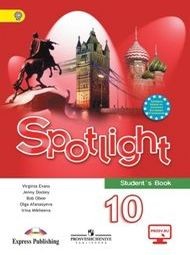
Учебник английского языка для 10 класса, автор – Ваулина, представляет собой увлекательный и структурированный подход к обучению школьников. В нем удачно сочетаются теоретический материал, упражнения для практики и интересные задания, способствующие развитию всех языковых навыков. Это пособие подходит как для самостоятельного изучения, так и для работы на уроках.
ГДЗ по Английскому Языку 10 Класс Модуль 8 Spotlight on Exams Номер 3 Ваулина — Подробные Ответы
Заполните промежутки (1-7) правильным словом, образованном от слов выделенным жирным шрифтом.
Леонардо да Винчи
К настоящему времени Вы, 1) вероятно, прочитали Код да Винчи или видели фильм.
Но кем 2) именно был Леонардо да Винчи? Ну, он родился в 1452 в Италии. Он наиболее 3) известен своей 4) картиной «Мона Лиза». Да Винчи был также 5) изобретателем, который спроектировал вертолет, субмарину и парашют за столетия до того, как они были сделаны. Леонардо думал, что, понимая, как работает каждая часть машины, он мог изменить их и затем соединить их вместе 6) разными способами. Таким образом, он смог улучшить 7) существующие машины или создать новые. Он разработал свои идеи так хорошо, что 500 лет спустя его эскизы использовались, чтобы сделать прекрасные рабочие модели.
1 probably (вероятно)
2 exactly (именно)
3 famous (известен)
4 painting (картинa)
5 inventor (изобретатель)
6 different (различный)
7 existing (существующие)
Probably (вероятно):
«Probably» is used to express a high degree of likelihood or probability that something will happen or is true. It suggests that, based on available information or reasoning, an event or outcome is likely to occur, but there’s still a possibility it might not. For example, if someone says, «She will probably come to the party,» it means there is a high chance she will attend, but it’s not guaranteed.
Example sentence:
«The weather will probably be sunny tomorrow.»
(Завтра, вероятно, будет солнечно.)
Exactly (именно):
«Exactly» is used to indicate something that is precise, correct, or accurate without any ambiguity. It means something is done or described with perfect precision. It can also be used to emphasize agreement with a statement or when something is understood without question.
Example sentence:
«I will meet you at exactly 3 PM.»
(Я встречусь с тобой именно в 3 часа дня.)
Famous (известный):
«Famous» refers to someone or something that is well-known and widely recognized, often for achievements, qualities, or characteristics. Fame is typically associated with public recognition, and famous individuals or things are often celebrated or admired by many people.
Example sentence:
«Leonardo da Vinci is famous for his paintings and inventions.»
(Леонардо да Винчи известен своими картинами и изобретениями.)
Painting (картина):
A «painting» is a work of art created by applying pigments, colors, or other mediums onto a surface, such as canvas, paper, or a wall. Paintings can be representational or abstract and are created using various techniques, such as oil painting, watercolor, or acrylic painting.
Example sentence:
«The museum has a collection of paintings by famous artists.»
(В музее есть коллекция картин известных художников.)
Inventor (изобретатель):
An «inventor» is a person who creates or designs something new, often a device, process, or system that has not existed before. Inventors contribute to advancements in technology, science, and everyday life by coming up with original solutions to problems or challenges.
Example sentence:
«Thomas Edison was the inventor of the light bulb.»
(Томас Эдисон был изобретателем лампочки.)
Different (различный):
«Different» is used to describe things that are not the same or have distinct qualities or characteristics. It indicates variety, diversity, or a lack of similarity between two or more things. When something is «different,» it stands apart from others in terms of appearance, function, or nature.
Example sentence:
«They have different opinions about the movie.»
(У них разные мнения о фильме.)
Existing (существующие):
«Existing» refers to something that is already present or currently in existence. It indicates that something has been created, established, or is already part of the present time. The term often contrasts with something that is new, proposed, or hypothetical.
Example sentence:
«The existing rules of the game need to be revised.»
(Существующие правила игры нуждаются в пересмотре.)



Оставь свой отзыв 💬
Комментариев пока нет, будьте первым!